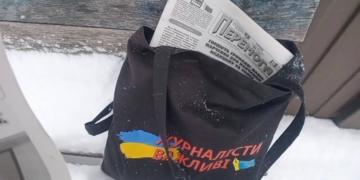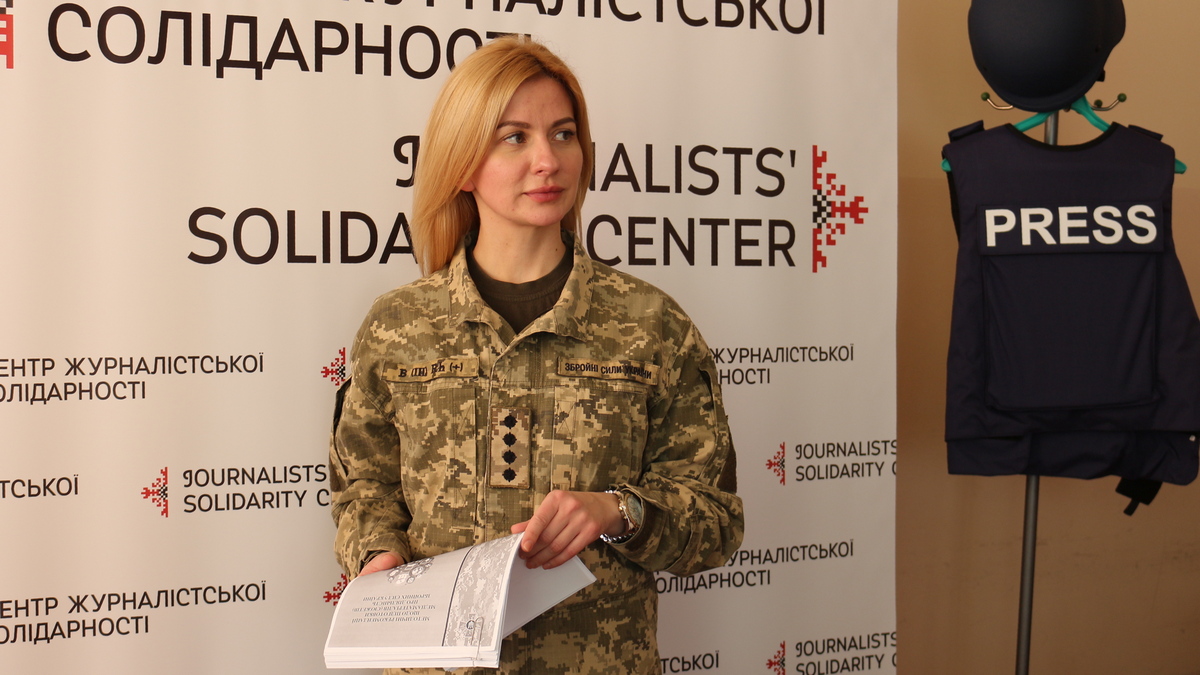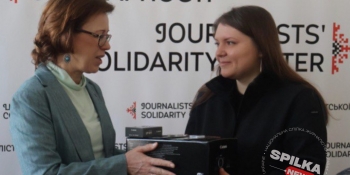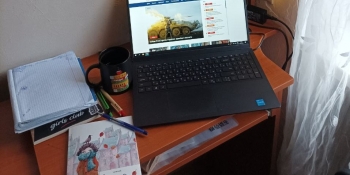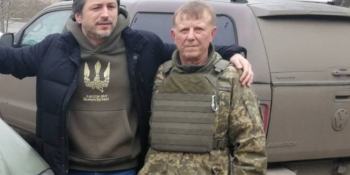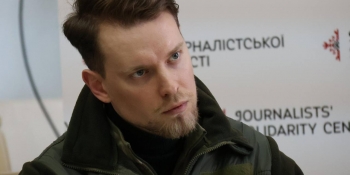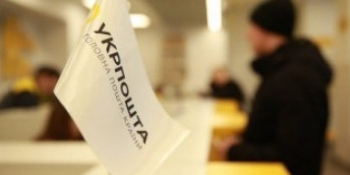Preparation for work amid battles with Russian occupiers, “unwritten” rules for staying in hot spots and the safety of journalists are today the most frequent topics experts discuss with media workers. This was also discussed last Friday at the Chernivtsi Journalists’ Solidarity Center of the National Union of Journalists of Ukraine (NUJU).
Head of the press service of the Chernivtsi Regional Territorial Center for Staffing and Social Support / Armed Forces of Ukraine (AFU) Captain, Tetiana Popovych, was on the front line of defense a few months before the full-scale invasion. Our military were preparing to “meet” the enemy, while journalists were doing their job.
“Since then, during the year of full-scale war, a lot has changed, we have gained some experience. But the basic principles of journalists’ work on the front lines remain constant even today: not to harm either our military or journalists themselves. We have no right to neglect even bulletproof vests and helmets, which somewhat hinder work, but at any moment can become a lifesaver,” Captain Popovych told journalists who joined the event.
As a results of the meeting, a number of recommendations will be prepared on the mentioned subject. After all, it is better to once again take care of your own safety and remain a full-fledged employee, than to neglect the experience you have already gained and create trouble for yourself, as well as for relatives or close people.
As earlier reported, the Journalists’ Solidarity Centers are an initiative of the NUJU implemented with the support of the International and European Federations of Journalists, as well as UNESCO. The initiative is designed to help media representatives working in Ukraine during the war. The Centers operate in Kyiv, Lviv, Ivano-Frankivsk, Chernivtsi, Zaporizhzhia, Dnipro and provide journalists with organizational, technical, legal, psychological, and other types of assistance.
Call the Chernivtsi Journalists’ Solidarity Center– 068 286 3706 (Volodymyr Bober, a coordinator of the Chernivtsi Center), Address: 96, Nezalezhnosti Avenue.
UNESCO is the United Nations Educational, Scientific and Cultural Organization. It contributes to peace and security by promoting international cooperation in education, sciences, culture, communication and information. UNESCO promotes knowledge sharing and the free flow of ideas to accelerate mutual understanding. It is the coordinator of the UN Action Plan on the Safety of Journalists and the Issue of Impunity, which aims to create a free and safe environment for journalists and media workers, thus strengthening peace, democracy, and sustainable development worldwide. UNESCO is working closely with its partner organizations in Ukraine to provide support to journalists on the ground.
The designations employed and the presentation of material throughout this digest do not imply the expression of any opinion whatsoever on the part of UNESCO concerning the legal status of any country, territory, city or area or its authorities, or concerning the delimitation of its frontiers or boundaries. The authors are responsible for the choice and the presentation of the facts contained in this digest and for the opinions expressed therein, which are not necessarily those of UNESCO and do not commit the Organization.
Chernivtsi Journalists‘ Solidarity Center





